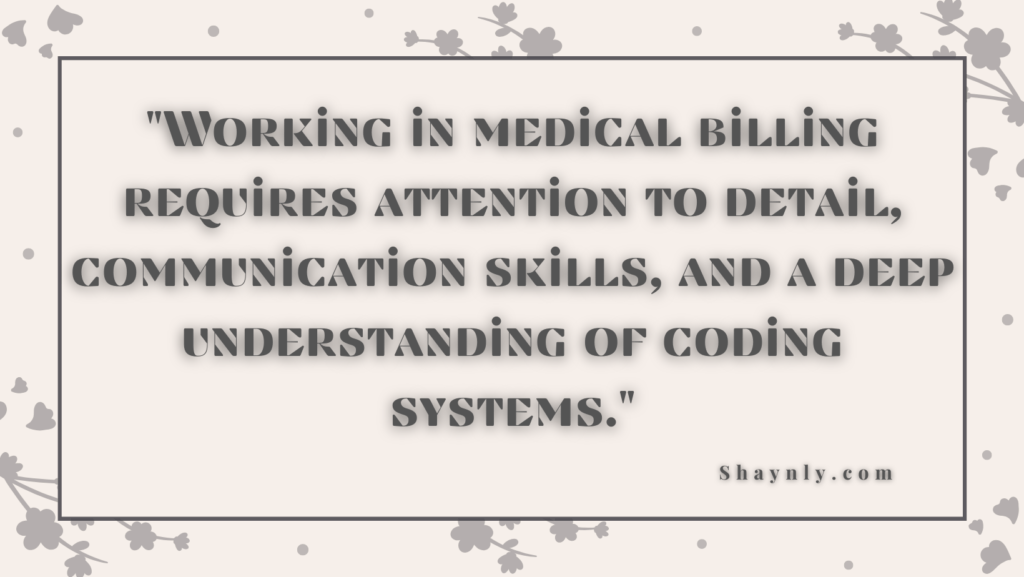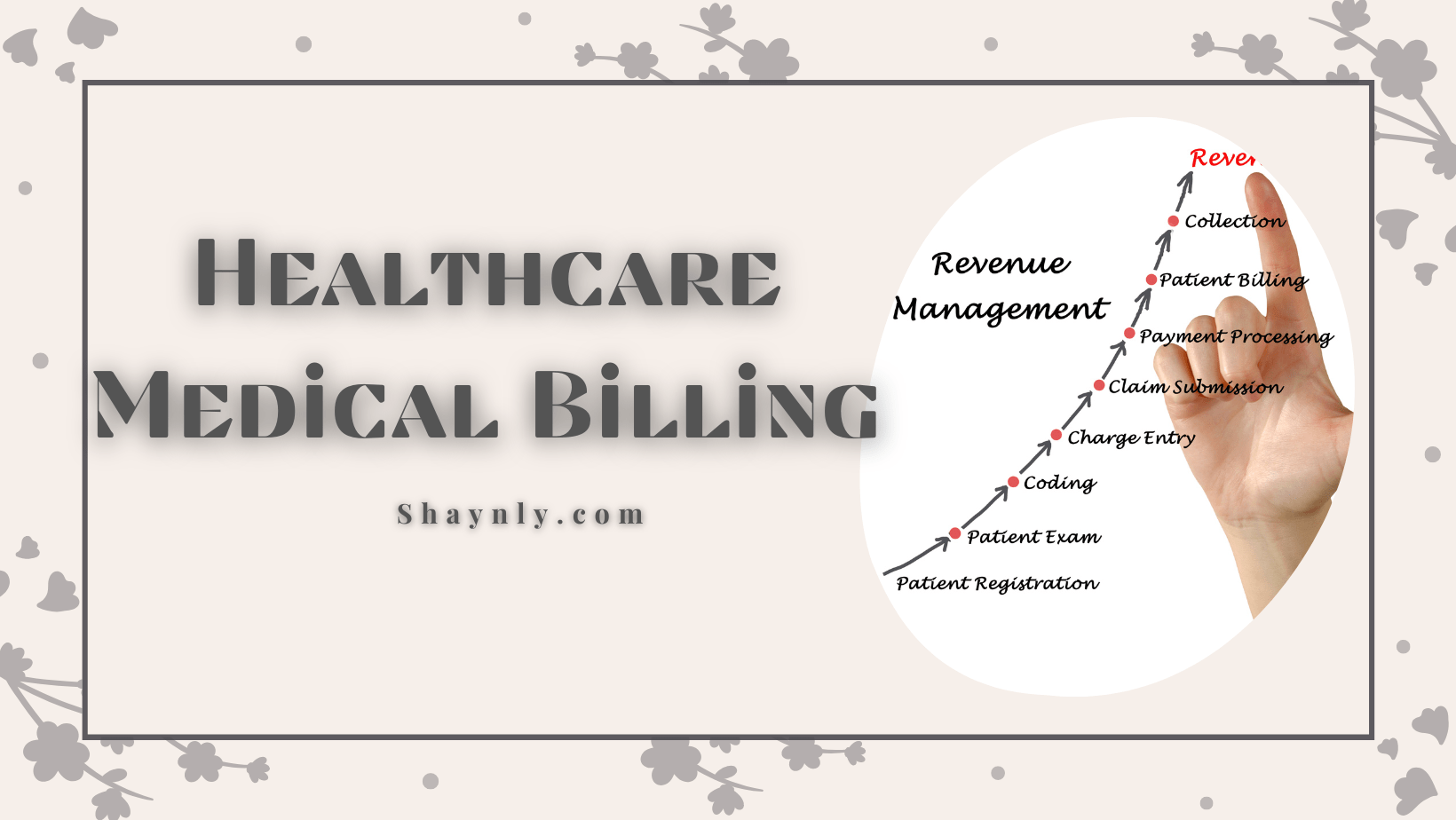Table of Contents
Effective medical billing is critical for the financial stability and success of healthcare organizations. It involves the timely and accurate submission of claims to insurance providers and government payers, as well as the management of patient accounts, payment posting, and revenue cycle analysis. Healthcare providers need to optimize their medical billing processes to ensure they are maximizing revenue and avoiding costly errors and compliance issues. In this guide, we will explore the essential skills and strategies for successful healthcare medical billing.
What is Healthcare Medical Billing?
Healthcare medical billing is the process of submitting and following up on claims with insurance companies and government payers to receive payment for services provided by healthcare providers. It involves several steps, including:
- Patient registration and insurance verification
- Charge capture and coding
- Claim submission and follow-up
- Payment posting and reconciliation
- Denial management and appeals
Medical billing is a complex and constantly evolving process that requires specialized knowledge and skills to ensure accurate and timely reimbursement.
Why is Healthcare Medical Billing Important?
Effective medical billing is crucial for the financial health of healthcare organizations. Poorly managed medical billing can result in denied claims, delayed payments, and lost revenue. In addition, non-compliance with billing regulations can result in costly penalties and legal action. Optimizing medical billing processes can help healthcare providers:
- Maximize revenue and reduce costs
- Improve cash flow and financial performance
- Enhance patient satisfaction by minimizing billing errors and delays
- Ensure compliance with regulations and reduce legal risk
Medical Billing Process:
The medical billing process involves several steps that healthcare providers must follow to ensure that claims are submitted accurately and promptly.
- Patient Registration and Insurance Verification: Before providing any healthcare services, healthcare providers must register patients and verify their insurance coverage to ensure that they are eligible for services. Patient registration involves collecting patient demographics and insurance information.
- Coding: Once the patient's information is collected, healthcare providers must assign medical codes to the services provided. Medical codes are used to describe the patient's diagnosis, the services provided, and the duration of the services.
- Claim Submission: After coding, healthcare providers must prepare and submit the claim to the patient's insurance company. The claim must be submitted in the format required by the insurance company.
- Claim Follow-up: Healthcare providers must follow up on claims to ensure that they are processed and paid. If a claim is denied or rejected, healthcare providers must review the reason for denial or rejection and take appropriate action to resubmit the claim.
Common Medical Billing Challenges:
Medical billing in healthcare is a complex process that involves several challenges. The following are some of the common challenges that healthcare providers face in medical billing:
- Insurance Denials and Rejections: Insurance companies may deny or reject claims for several reasons, such as incorrect coding, incomplete information, or lack of medical necessity. Healthcare providers must have a thorough understanding of insurance policies and guidelines to minimize denials and rejections.
- Regulatory Changes: Medical billing regulations are constantly changing, and healthcare providers must stay up to date with the latest changes to ensure compliance.
- Staff Training: Medical billing requires a trained and knowledgeable staff that understands the process and can handle the challenges effectively.

How to Improve Medical Billing in Healthcare:
Healthcare providers can take several steps to improve their medical billing process and increase revenue. The following are some tips for improving medical billing:
- Staff Training: Healthcare providers must invest in staff training to ensure that their staff is knowledgeable and skilled in medical billing.
- Automate Billing Processes: Automated billing processes can improve accuracy, reduce errors, and save time.
- Stay up to Date with Regulations: Healthcare providers must stay up to date with the latest regulations and guidelines to ensure compliance.
- Outsource Medical Billing: Outsourcing medical billing to a professional billing service provider can reduce costs and improve revenue.
Essential Healthcare Medical Billing Skills
Successful medical billing requires a combination of technical and soft skills. Here are some essential skills for healthcare medical billing professionals:
1. Medical Coding and Terminology
Medical billing professionals must have a solid understanding of medical coding and terminology, including ICD-10, CPT, and HCPCS codes. Accurate coding ensures that claims are submitted correctly and reimbursed appropriately. It also requires keeping up with the latest updates and changes in the coding system.
2. Regulatory Compliance
Healthcare medical billing professionals must be knowledgeable about relevant laws and regulations, such as HIPAA, HITECH, and the Affordable Care Act. Compliance is critical to avoid penalties and legal risks.
3. Attention to Detail
Medical billing requires a high level of accuracy and attention to detail. Professionals must ensure that all patient and insurance information is correct, and that claims are submitted with the correct codes and modifiers.
4. Communication and Customer Service
Medical billing professionals must be able to effectively communicate with patients, insurance companies, and other healthcare professionals. They must have excellent customer service skills to address patient inquiries and concerns.
5. Problem-Solving and Decision-Making
Medical billing professionals must be able to identify and resolve billing issues, such as denied claims and payment discrepancies. They must also make decisions on when to appeal a denied claim or pursue other payment options.
6. Technology and Software
Medical billing professionals must be proficient in using medical billing software and other technology, such as electronic health records (EHRs) and revenue cycle management (RCM) tools. They must also be able to adapt to new software and updates.
Medical Billing Jobs

Medical billing is a crucial aspect of the healthcare industry, and as such, there is a high demand for professionals who specialize in medical billing. Medical billing jobs can be found in hospitals, clinics, private practices, and other healthcare facilities. These jobs involve the processing and submission of insurance claims for medical services provided to patients.
Medical billing professionals must have a thorough understanding of medical terminology, coding, and insurance policies. They must be able to accurately translate medical services into codes for billing purposes and submit claims to insurance companies on behalf of healthcare providers. They must also be able to follow up on claims, manage patient accounts, and handle any issues related to insurance claims.
There are several different types of medical billing jobs, including:
- Medical Billing Specialist: A medical billing specialist is responsible for processing and submitting insurance claims for medical services. They must have a thorough understanding of medical coding, insurance policies, and billing software.
- Medical Coding Specialist: A medical coding specialist is responsible for translating medical services into codes for billing purposes. They must be proficient in medical terminology and coding systems, such as ICD-10 and CPT.
- Medical Billing Manager: A medical billing manager is responsible for overseeing the medical billing process and ensuring that claims are processed accurately and in a timely manner. They must have strong leadership and communication skills.
- Medical Billing Consultant: A medical billing consultant provides advice and guidance to healthcare providers on medical billing practices. They must have a thorough understanding of medical billing regulations and policies.
To become a medical billing professional, you typically need a high school diploma or equivalent. Some employers may require additional training or certification in medical billing and coding. The American Academy of Professional Coders (AAPC) and the American Health Information Management Association (AHIMA) both offer certification programs for medical billing professionals.
In terms of salary, the average medical billing specialist in the United States earns around $41,000 per year, according to PayScale. Salaries can vary depending on factors such as experience, location, and employer.
If you're interested in pursuing a career in medical billing, it's important to have a strong understanding of medical terminology, coding systems, and insurance policies. You should also be comfortable working with billing software and have strong attention to detail. With the right training and certification, you can find a rewarding career in medical billing.
Conclusion
Medical billing is an essential aspect of healthcare services that requires careful attention to ensure accuracy and efficiency. Healthcare providers must understand the medical billing process and take appropriate steps to improve it. By investing in staff training, automating billing processes, staying up to date with regulations, and outsourcing medical billing, healthcare providers can improve their revenue and maintain their operations.
Source
- The Bureau of Labor Statistics
- PayScale
- The American Academy of Professional Coders (AAPC)
- The American Health Information Management Association (AHIMA)
What kind of education or training is required to become a medical billing professional?
Typically, a high school diploma or equivalent is required to become a medical billing professional. Some employers may require additional training or certification in medical billing and coding, which can be obtained through programs offered by organizations like the American Academy of Professional Coders (AAPC) or the American Health Information Management Association (AHIMA).
What skills are necessary to be successful in a medical billing job?
Medical billing professionals must have a strong understanding of medical terminology, coding systems, and insurance policies. They should also be comfortable working with billing software and have strong attention to detail. In addition, strong communication and problem-solving skills are important for handling any issues related to insurance claims.
What is the average salary for a medical billing specialist?
According to PayScale, the average salary for a medical billing specialist in the United States is around $41,000 per year. However, salaries can vary depending on factors such as experience, location, and employer.
What are the job prospects for medical billing professionals?
The demand for medical billing professionals is expected to grow in the coming years as the healthcare industry continues to expand. According to the Bureau of Labor Statistics, employment of medical records and health information technicians, which includes medical billing professionals, is projected to grow 8% from 2019 to 2029.
What are the typical job responsibilities of a medical billing professional?
Medical billing professionals are responsible for processing and submitting insurance claims for medical services provided to patients. They must translate medical services into codes for billing purposes, submit claims to insurance companies, and follow up on claims. They may also manage patient accounts and handle any issues related to insurance claims.
What are some common challenges faced by medical billing professionals?
Some common challenges faced by medical billing professionals include dealing with denied claims, managing patient accounts, staying up to date on changes in insurance policies, and working with difficult patients or healthcare providers. Strong problem-solving and communication skills are important for handling these challenges.

